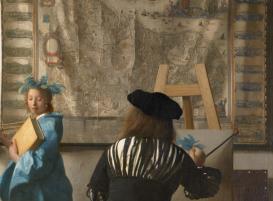This project investigated the historical roots of the global knowledge society. Its long-term ambition was to contribute to our understanding of the knowledge society in a global context and to gain insights in its development up to today. Its first phase investigated the global knowledge society by focusing on the years between 1500–1750, paying particular regard to the Low Countries in comparative perspective. In the early modern period, an explosive expansion in the production and distribution of data took place, followed by regulation of knowledge flows (e.g., through legislation concerning book privileges and censorship), but also by a re-organization of institutions handling knowledge transfer (e.g., art academies) and the development of new media. Through the invention of the printing press, the founding of academies and of trade companies and the growth of state bureaucracies, knowledge production and knowledge distribution evolved into much broader, more interactive social processes than in previous centuries. The project consisted of four Working Groups:
- Urbanization: Knowledge and the City
- New Languages, New Objects: Trading Zones and Boundary Objects
- Knowledge and the Market: Commodification, Emotional Economies
- Across the Border: Urban Knowledge Systems and their European Transfer

